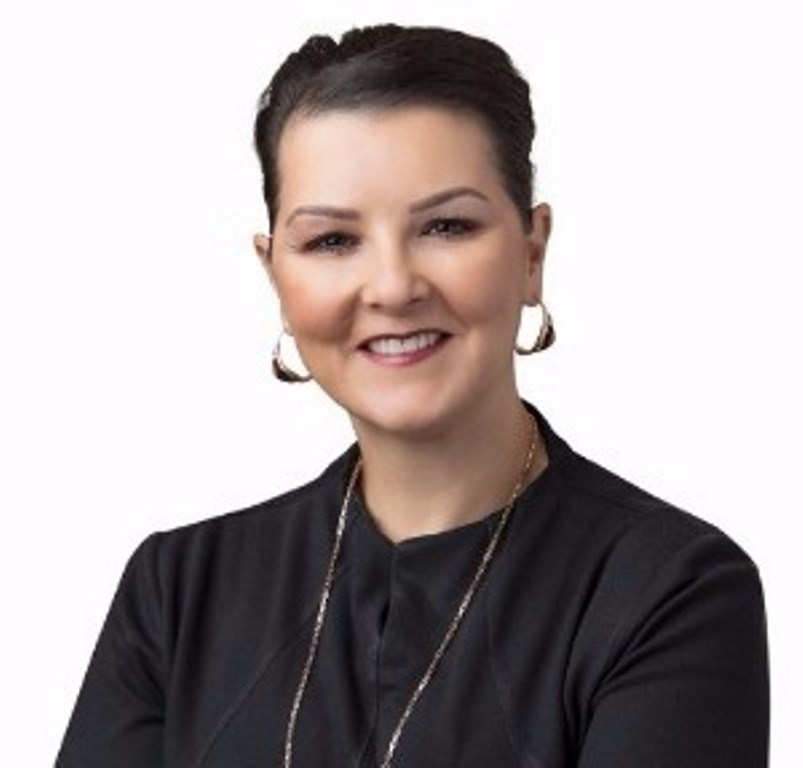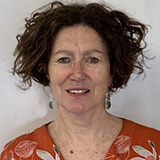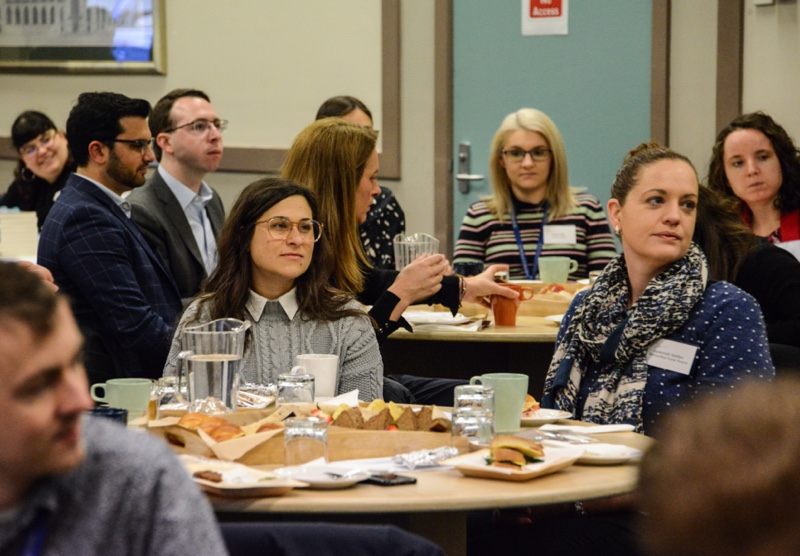More than 120 people attended an online event hosted by CSSV to hear reflections and ‘next steps’ from a number of key speakers who attended the National Summit on Women’s Safety held from 6-7 September.
With the National Plan to Reduce Violence against Women and their Children 2010–2022 soon coming to a close, development of the next National Plan is well underway. The most recent online Summit brought together a range of experts, including advocates, service providers and those with lived experience of violence, to discuss key issues affecting women’s safety, with the view of this feeding into the development of a new national plan.
Felicity Rorke, Executive Director of Good Samaritan Inn and Chair of CSSV’s Domestic Violence Working Party, led the online gathering held on 9 September, with Summit guest speakers including Stella Avramopoulos, Executive Director of Good Shepherd Australia New Zealand, Tania Farha, CEO of Family Violence Victoria and Eleri Butler, CEO of Family Safety Victoria.
Stella Avramopoulos, Executive Director of Good Shepherd Australia New Zealand

‘There were so many topics and issues discussed, the full gamut of what we’ve been talking about and what we know about domestic violence was certainly there,’ said Stella. ‘One of the standout sessions for me was the presentations from the First Nations women and the recommendation for a specific First Nations Family Violence Plan.’
Another highlight was the cross-sector, multi-stakeholder approach that has been taken. ‘We have this moment in time, the conversation is about being a cross-sector, multi-stakeholder issue and everyone being around the table is really coming to the fore. We really want to grab hold of that. We want to take that and put some pressure on people to walk their talk, to really commit, be around the table, and identity what aspect of family violence they’re prepared to co-invest and participate in and how will we align that in a way that properly wraps around women and their families.
She said, however, ‘It’s not an effective plan unless women with lived experience look at this plan and know that we’re all accountable for it and that they can see that there is hope for them in their recovery and that there is hope and opportunity to leave family violence situations.’
Stella found the presentation around technology-facilitated abuse ‘very interesting’ identifying it as ‘a growing area for concern’ that requires regulation. ‘Our sector really needs to be supported and resourced to tackle this,’ she said. ‘It’s a growing area of concern, so as a sector we need to have conversations with government around what we are going to do.’
She said, ‘We have an opportunity here to take up a leadership role as experts in this space for the business community and for government and I want us to really exercise that agency as a sector. It is also on us particularly as a faith-based organisation to give hope and to be accountable … we owe that to the women with lived experience.’
‘I think it’s also on us at this point of time, speaking as a faith-based organisation, to start risking for mission here. We’ve got to start thinking about doing things differently, where we need to, looking at our service models, looking at who we’ve partnered with in the past and who we need to partner with in the future. That may mean we need to stop some things, it may mean that we need to start co-investing and looking at what contributions do we want to make, how do we want to leverage what we have as a co-investment to be taken seriously and to actually ask for things that we know the community needs.’
‘I really encourage all of us to start exercising our agency, risking for mission and starting to collaborate jointly around these issues in a more unified way.’
Tania Farha, CEO of Safe and Equal

Tania Farha is CEO of Safe and Equal (the newly merged Domestic Violence Victoria and Domestic Violence Resource Centre), the peak body for family violence in Victoria. Some of the reflections she shared included:
‘The prime minister said some really important things in his opening address in that we have to end violence and not just reduce it. But to do this, we need all of the voices: we need the voices of the Aboriginal and Torres Strait Islander women, people with lived experience, the voices of specialist sectors, the voices of all those who’ve been previously marginalised, to be part of the making of this plan.
She expressed disappointment that ‘Victorians were excluded from the preparations and discussions at the Summit’, saying ‘we have a lot to add because of all the work we’ve done here in Victoria’.
‘I feel like the discussions didn’t move us forward. We’ve have had so many discussions over the last 5 to 6 years, just prior to the Royal Commission and subsequent to it as we’ve imbedded all of these reforms. As a result of that there was some really good insights and issues and solutions we could have brought to the table,’ she said.
Despite this, Tanya encouraged all to read the Summit Statement saying, ‘It’s really positive and lays a good foundation for what should be in the Plan including housing – it has a strong reference to that, and I want to say that’s thanks to the Victorian contribution!’
Moving forward, there will be continued lobbying to ensure the upcoming national plan addresses technology-facilitated abuse and building capacity in the sector to address this, as well as a strong focus on gender equality as the foundation particularly around the issue financial security. Its hope there will be strong action on the continuum, starting at primary prevention to early intervention to response and then recovery and healing.
‘I still have some hope,’ said Tania. ‘This is not the end of the process. It’s just the start as the plan is still to be written. We still have a chance to really input to this, and if we work together as services to make sure that we get our voices heard in there, it going to be even more powerful.’
Eleri Butler, CEO of Family Safety Victoria

Eleri Butler is CEO of Family Safety Victoria. In her presentation she acknowledged the delegates who attended the summit and how they worked together for a ‘shared goal’, ‘using evidence of what works to inform the national plan discussion and what still needs to be done.’
Though she too expressed disappointment that the representation from Victoria and the reforms that Victoria has been doing and the learnings were not shared more widely in panel session. She said, ‘In Victoria we’ve had a simultaneous focus on service and system transformation, supported by significant and unprecedented state investment – over $3billion now – into the reforms, as well as comprehensive long- term plans to achieve lasting change. I think some of that learning could have benefited in the panel discussions.’
‘In Victoria, we have a lot to share in relation to our learning. We know every response counts. If survivors are believed and respected and supported the first time they disclose abuse, we know this can be life-saving and life-changing.’ She spoke of the MARAM Framework – Multi Agency Risk Assessment Management Framework – which is enshrined in law, and mandates that certain agencies must identify, assess and reduce family violence risk and respond to needs and share information through the MARAM Framework.
‘There was a lot of learning that we could have shared to inform other states and the commonwealth government on what’s working and what does good practice look like.’
She also said, ‘One of the most effective ways the national plan could contribute to developing service and system reform, and innovation and measuring success would be to have a coordinated national approach to research, to data gathering and information sharing. I think that would really drive a nation-wide understanding of family violence patterns, trends and available interventions. Having such a national research and evidence agenda could be used to inform future policy directions, and to inform investment opportunities and to guide national government investment.’
In closing, Eleri said, ‘The National Plan needs to be ambitious. It needs to be inclusive, it needs to focus on outcomes. We really need to focus on areas that will be strengthened by a national approach, building on states and territories’ activities and actions that are already in place, and particularly building on Victoria’s significant reforms. We want to see concrete commitments from the commonwealth in areas of its jurisdiction that really takes us forward for the next 10 years and sets out well the responsibilities of all stakeholders so that we have really clear commitments that are timely and will be held to account for, in terms of delivery.
‘It’s a once in a decade opportunity to build on the challenges we’re currently working with, and to make sure that survivors lived experience and services expertise and communities’ experience are really central to the plan.’
CSSV’s Ongoing Commitment

As chair of CSSV’s Domestic Violence Working Group, Felicity Rorke outlined CSSV’s commitments:
We leave today committing ourselves to being part of an appropriate response to violence against women recognising the structures that lead to an effective response including the provision of appropriate services, crisis, transitional and long-term housing options and being part of a community that acknowledges the harm that is being done.
We commit ourselves to being part of cultural change in an Australia where perpetrators of violence are held to account and supported to change their attitudes and behaviours.
We commit ourselves to addressing the gendered drivers of violence against women where all forms of violence and abuse is unacceptable.
We acknowledge that safety of women is most often related to men perpetrating abuse and violence but also that men are experiencing violence. Men who are experiencing violence also need our support.

Join our mailing list
Keep up to date with latest news, information and upcoming events.
We respect your privacy, as outlined in our privacy policy.